Background: In this Aug. 12, 2017 file photo, white nationalist demonstrators clash with counter demonstrators at the entrance to Lee Park in Charlottesville, Va. (AP Photo/Steve Helber, File) Inset: Public photo of Robert Rundo, founder of white nationalist Rise Above Movement.
A federal judge in California has granted bail to the alleged founder of a white supremacist group involved in several violent riots in the wake of Donald Trump’s election, slamming prosecutors in his ruling and declaring that Robert Rundo’s “clear purpose” was to “battle Antifa and prevent Antifa from hurting people.”
As Law&Crime previously reported, Rundo’s case has been dismissed twice before by U.S. District Judge Cormac J. Carney, an appointee of George W. Bush. Carney found that while Rundo’s personal views were reprehensible, the accused neo-Nazi’s prosecution under a series of anti-rioting charges struck him as wildly unfair. In Carney’s estimation, groups promoting “far-left” ideologies had not been treated equally.
After Carney — who is set to retire next month, according to Law360 — cleared charges against Rundo in February, the Huntington Beach resident was ordered released from detention, though not without pushback from prosecutors on appeal. As the Los Angeles Times reported, it was ultimately the Ninth Circuit Court of Appeals which decided that going forward, any decision to release Rundo on bail would require an automatic stay of four days minimum.
Related Coverage:
Rundo was indicted in 2018 alongside fellow alleged white supremacists Robert Boman, Tyler Laube and Aaron Eason for violating anti-rioting laws and engaging in conspiracies to attack protesters. He ended up admitting to an assault charge and admitted that he received combat training ahead of political rallies he attended in 2017 in California with members of the now-defunct white supremacist group, the Rise Above Movement, or RAM.
He became a fugitive briefly after he fled his initial arrest. He fled to Ukraine and then London. He even tried to board a plane to Moscow but was stopped. Prosecutors said Rundo got into the U.S. one time before he was captured before going over the border to Mexico and, later, by traveling to Cuba and then to Guatemala before ending up in Romania where he was finally extradited in 2018. Someone had spotted him working out at a gym in Bucharest and reported him.
Since no jury has yet found Rundo guilty of charges to conspire to cause riots at political rallies through violence, Carney bristled at the idea of Rundo’s detention.
“An objective review of the evidence reveals that though Mr. Rundo espouses a hateful ideology, he and his co-defendants were not the true threat to democracy at rallies. Contrary to the government’s accusations, it was Antifa, a far-left extremist group, that posed the insidious threat to democracy,” the judge wrote.
Antifa is not a group with any sort of leadership; it is an anti-fascist ideological movement.
He continued:
Antifa, not Mr. Rundo and his co-defendants, went to the rallies to shut them down by demeaning, pepper-spraying, assaulting and injuring the people in attendance. Mr. Rundo’s and his co-defendants’ clear purpose in attending the rallies, on the other hand, was to battle Antifa and to prevent Antifa from hurting the people in attendance and denying them their First Amendment right to free assembly and speech.
Because there are reasonable conditions that can reasonably assure the safety of the community and Mr. Rundo’s appearance as required, Mr. Rundo is entitled to bail.
Carney’s 33-page opinion describes at length the judge’s position on the “violent actions of people calling themselves Antifa” and who were also associated with the three riots Rundo’s charges sprang from: a Make America Great Again rally on March 25, 2017, in Huntington Beach; an April 15, 2017, rally in Berkeley; and a June 10,. 2017, rally in San Bernardino.
Though Carney admitted “tensions were high” at the Huntington Beach rally, for instance, he still excoriated prosecutors, writing that the government “conflates peaceful counter protesters with armed members of Antifa and ignores the fact that Antifa instigated the violence.”
Laube, the judge said, was assaulted by antifa after someone knocked an American flag to the ground. Eason — who Carney said was not dressed in garb denoting he was part of the white supremacist movement — only “verbally confronted” the person responsible for knocking down the flag but did not get “physical.” Eason, who has since died, maintained he was not part of RAM and did not know his fellow co-defendants.
A rally attendee who Carney said was not associated with RAM shoved someone and a fight broke out and a “journalist wearing all black intervened and grabbed the man who started the shoving.”
“From Mr. Laube’s perspective, the journalist was dressed like Antifa and was assisting somebody who had harassed a Trump supporter. Mr. Laube joined the fray and punched the journalist,” Carney wrote before declaring that a member of antifa “unleased pepper spray on Mr. Laube” and others not involved in the fight.
What ensued was Rundo running to defend Laube by punching a member of antifa that he believed had pepper sprayed him and others at the pro-Trump rally.
“The confrontation was relatively brief, lasting only a few minutes, and there is no indication that Mr. Rundo and his co-defendants were involved in further violence,” Carney wrote, adding that police did not confiscate knives or weapons from Rundo, Laube, Boman or Eason but they did seize them from antifa.
Antifa went to rallies in April and June “with the intent to engage in battle,” Carney wrote.
“But it is also true that members of RAM appeared equally interested in engaging in battle with them … both sides expressly challenged each other to combat,” he wrote.
According to the Los Angeles Times, from the bench on Tuesday Carney asked whether federal prosecutors really believed they could get a jury in Orange County to unanimously agree that Rundo and his co-defendants conspired to commit violence against “innocent counterprotesters.”
In his 36 years as a lawyer and judge, Carney said his “sense” was that people in Orange County “do not like antifa demeaning disabled veterans” nor “desecrating our flag” nor “pepper spraying middle aged women who are just arguing what they believe.”
“I think you are going to have a problem,” Carney reportedly said.
Carney argued that much of Rundo’s conduct was protected by the First Amendment and that remaining allegations involving violent conduct were restricted to incidents specifically involving antifa.
“Because the allegations of Mr. Rundo’s violence are limited to a particular context, release conditions, such as prohibiting Mr. Rundo from attending any political rally or associating with any member of any white nationalist organization, are well suited to addressing any potential danger to the community,” Carney wrote, adding that the government itself did not allege Rundo or his co-defendants explicitly injured anyone.
Laube, he notes, struck a plea deal with prosecutors and saw his charges reduced and a sentence recommendation of just six months.
As to Rundo’s temporary fugitive status, the judge also appeared sympathetic.
“In fairness to Mr. Rundo, during many of these periods he was technically free to travel. Still Mr. Rundo’s use of fake documents and other deceptive tactics while attempting to travel internationally demonstrate that, in practical terms, he was trying to evade prosecution and is willing to leave the country to maintain his freedom.”
The judge said he was left unconvinced by prosecutors that Rundo ever intended to flee and he doubted the confidential FBI source who said Rundo told him he was trying to cross the border from the U.S. into Mexico.
“It involves multiple levels of hearsay,” Carney wrote.
Plus, the judge said, he could have been talking about fleeing before deciding against it.
Though he acknowledged Rundo’s criminal history — including his two-year stint in prison already for stabbing a person multiple times more than 10 years — there was nothing currently happening to suggest he would get in trouble if granted bail now.
The “violence” Rundo used at the rallies was specific to “battling Antifa” at conservative rallies, not liberal ones.
“Notably, it was antifa that, through violence and any means necessary, set about quashing conservative speech. It was antifa that was the true threat to the First Amendment and democracy, not Mr. Rundo,” Carney wrote.
Prosecutors did not immediately respond to a request for comment on Wednesday.
The conditions set for his release include surrendering his passports, restricting his travel to central California unless otherwise granted, barring him from any airport, seaport, railroad or bus terminal departing central California and ensuring that he stays at a Salvation Army facility in Anaheim. He must stay employed and cannot possess firearms or weapons of any kind and will be put under a location monitoring program. He is forbidden from talking to anyone that may be associated with RAM or any other “white nationalist organization.”
He is also forbidden from attending any political events, rallies, or marches, regardless of what group plans to be there.
Join the discussion
The post ‘Antifa instigated the violence’: Judge grants bail for alleged white supremacist charged in wake of Trump election first appeared on Law & Crime.

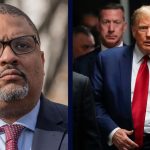
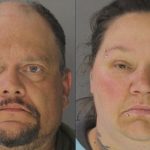
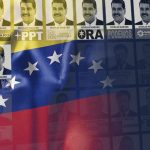





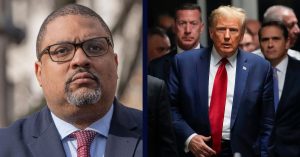
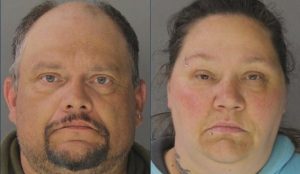
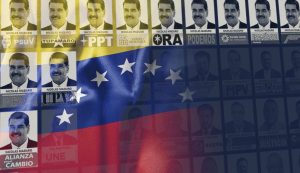
More Stories
‘No bearing on this prosecution’: Manhattan DA fires back as Trump demands judge toss hush-money conviction in wake of Supreme Court presidential immunity decision
DA to Seek Death Penalty for Couple Accused of Torture Murder of 12-Year-Old Girl Who Weighed 50 Pounds When She Died
Suspect Said Diddy Paid $1 Million to Have Tupac Murdered, Prosecutors Claim in Court Docs